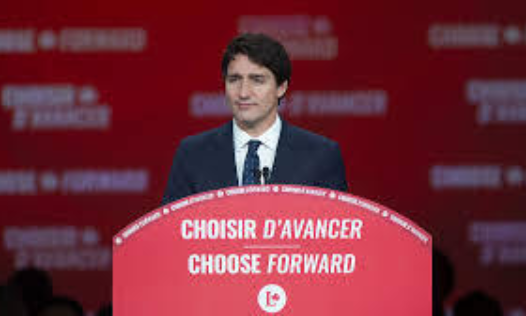Payment is being processed. Please do not refresh or close this page until your payment is complete.
 Book an Appointment
Book an Appointment

Amid mounting public criticism, Canadian Prime Minister Justin Trudeau has taken steps to revise the country's foreign worker program, which is considered one of the world’s most progressive migration policies.
With the election looming next year and his party trailing in the polls, Trudeau announced on Monday that his cabinet is exploring potential reductions to certain permanent resident streams.
"We're looking at the various streams to make sure that as we move forward, Canada remains a place that is positive in its support for immigration, but also responsible in the way we integrate and make sure there are pathways to success for everyone who comes to Canada," he said.
The move comes after scores of Canadians expressed concerns that the country is welcoming too many immigrants, prompting Trudeau's government to re-evaluate its approach.
Trudeau has long been a vocal advocate for welcoming those fleeing conflict zones, famously greeting Syrian refugees at Toronto airport in 2015 with warmth and kindness, providing them with winter jackets and saying, "You are home." Trudeau's government has also extended a similar welcome to refugees from Ukraine, showcasing Canada's commitment to providing a safe haven for those in need.
The Temporary Foreign Worker Program, designed to address labor shortages by bringing non-Canadian workers into the country on a short-term basis, has expanded significantly in recent years.
However, it has faced criticism for its role in suppressing wages and exposing workers to potential abuse, particularly due to permits that bind employees to specific employers. While business groups advocate for increased immigration and the use of temporary foreign workers to alleviate labor shortages, economists are challenging the idea that government intervention is necessary in this area.
Simranzeet Singh, manager of policy at the Ontario Chamber of Commerce, told Financial Times that more consultation was needed to ensure “changes do not inadvertently harm our economy or critical services”.
Canada is following the UK and Germany in tightening immigration policies amid growing public concern over the influx of foreigners. Immigration has also become a focal point in this year’s U.S. election, with Democratic candidate Kamala Harris facing criticism over the increase in migrants crossing the southern border from Mexico during the Biden administration.
“Ideally they should do nothing, but it’s hard for governments to do nothing when employers are upset,” The Star quoted Christopher Worswick, an economics professor at Carleton University as saying.
Many economists contend that a tight labor market benefits both workers and the economy, as labor shortages compel businesses to raise wages and invest in productivity-enhancing technologies.
“When governments and employer groups talk about shortages, it’s really not clear what they mean. Does it mean that we wished at a low wage, we could hire extra workers? Well, that’s not the way economies work,” Worswick said.
Canada has long prided itself on welcoming newcomers, and the current Liberal government has overseen a dramatic increase in the influx of new residents, especially temporary ones, as many employers struggled to fill vacancies coming out of the pandemic.
But over the past year, the tide has shifted: Immigrants are being blamed for a worsening housing situation along with an affordability crisis in the country. Critics have accused the federal government of bringing in too many people.
Meanwhile, Canada is seeing record levels of refugee claims - more than 18,000 in June, according to the Immigration and Refugee Board. This is despite government efforts to deter people by closing the land border to asylum-seekers through a contested bilateral agreement with the United States and by implementing new visa requirements for Mexicans.
Canada cannot dictate how many people file refugee claims but it can make it difficult for asylum-seekers to reach the country. Miller said the government may impose stricter criteria on temporary resident visas to prevent asylum-seekers from coming.
The government had also previously said it would pursue a regularization program to give status to undocumented residents.
That is not on the table before the election, Miller said, but he noted there is a possibility of sector-specific programs.
Source : https://www.msn.com/en-in/news/world/from-you-are-home-to-you-re-not-welcome-trudeau-s-immigration-policy-reversal-ahead-of-election/ar-AA1pNUHI?ocid=hpmsn&cvid=f980d6778f6c4dda9e014ebeb75f4c42&ei=19